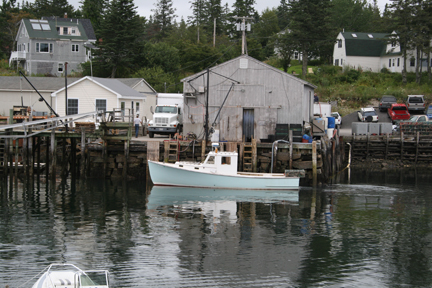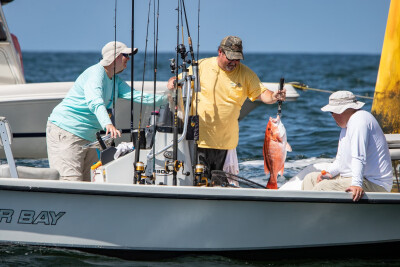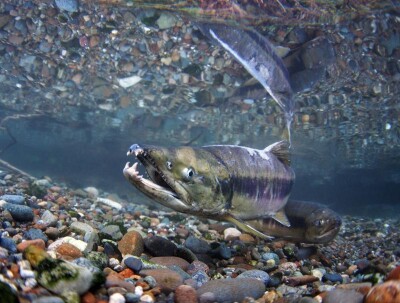I don’t think anyone would disagree with Togue Brawn’s statement that “nowadays everyone wants to get as much money for their product as possible, and that includes fishermen.”
But while everyone can agree that fishermen want to make more money for their catch (who wouldn’t?), is direct-marketing worth the extra effort?
Brawn, owner of Maine Dayboat Scallops, moderated an interesting panel discussion about direct marketing at the Maine Fishermen’s Forum in Rockport on Friday. Fishermen may make more money by selling to consumers, but it’s also much more complicated than unloading your catch in one transaction to a dealer.
The short answer is sometimes yes and sometimes no. From the discussion, direct marketing seems to work best when a structure for selling is already in place (like a farmers market) or if a motivated middleman steps in to peddle your product for you. Direct marketing is important to explore because for small-boat fishermen, it may be a lifeline.
A unique middleman
Brawn is a middleman. She left a position at the Maine Department of Marine Resources because she saw a “huge opportunity” to peddle Maine day-boat scallops to high-end restaurants. In contrast to scallops from larger boats, which can be a couple weeks old when landed, her scallops come from Maine day boats, which means they’re only about four hours old when they hit the dock.
“We’re very close to a number of cities with consumers who love a good story,” she said. “I think scallops is the perfect way to do it.”
Brawn is creative in how she sells scallops. She ended up selling more than 200 pounds of scallops this year to a body shop. That’s right. She was getting her car worked on and the issue of scallops came up (which probably happens often when Brawn’s around). She offered a deal: For every 20 pounds of scallops they’d buy, she’d throw in a free pound.
“It created a bulk sale because they called all their friends,” she said.
Farmers markets and CSFs
Fishermen may use agricultural models to sell their catch directly to consumers. The farmers running the Skowhegan’s market, for example, are encouraging fishermen to join their program so that they can also offer seafood to their customers. For fishermen, the benefit is the marketing and customers are already in place.
Another idea from farmers, community-supported fisheries (CSFs), is based on community-supported agriculture (CSA) programs, which sell consumers weekly shares of the harvest.
Port Clyde Fresh Catch is one successful CSF in Maine, though there were some missteps before finding a method that worked for both fishermen and consumers, said Robin Alden of the Penobscot East Resource Center:
As a bad example of a CSF, she talked about one using fish caught from a sentinel survey fishery. The fishery was just two fishermen using hooks to look for groundfish. Although they caught very little, they wanted to sell it. But they couldn’t overcome logistical problems — like no ice, nobody cutting fish, no regular schedule — and lost their consumers, who had been part of a previous scallops CSF.
“We had no idea when [the fish] were going to come nor how to get them from Swans Island (where they were landed) to a place where consumers were.... [The consumers] hated it. We lost them,” said Alden.
The current program, Port Clyde Fresh Catch, provides a much more stable supply. Port Clyde’s fleet of roughly two dozen boats supplies the CSF, which starts on June 1 and lasts 10 weeks.
“It’s really worth doing. If we can shorten the supply chain, fishermen will see a better return,” said Alden.
One of my biggest takeaways from the session is that you never know where ideas will come from. Be ready to jump on ideas when you hear them. An audience member at the session suggested that Maine lobstermen — who have been contending with low prices — could hire someone to sell their catch for them at a farmers market, and give them a commission on what they sell.
Do you think any of these ideas would work for you? Have you tried them and found success? Failure? For more information, here are links to the resources discussed by the panel:
Maine Seafood Marketing Network
There was a lot to learn in Rockport this weekend so I’ll have more from the forum in my next post. Thanks for reading!
Photo credit: Port Clyde Fresh Catch







